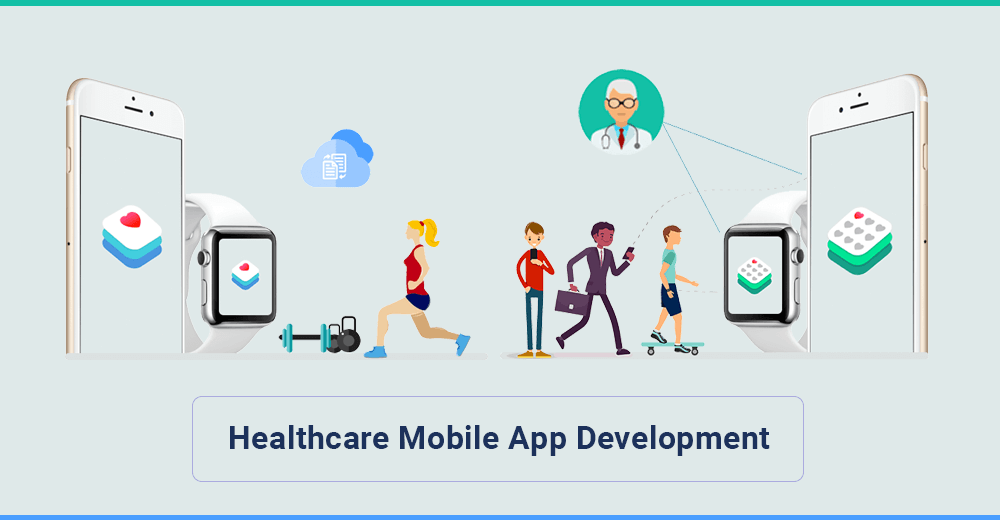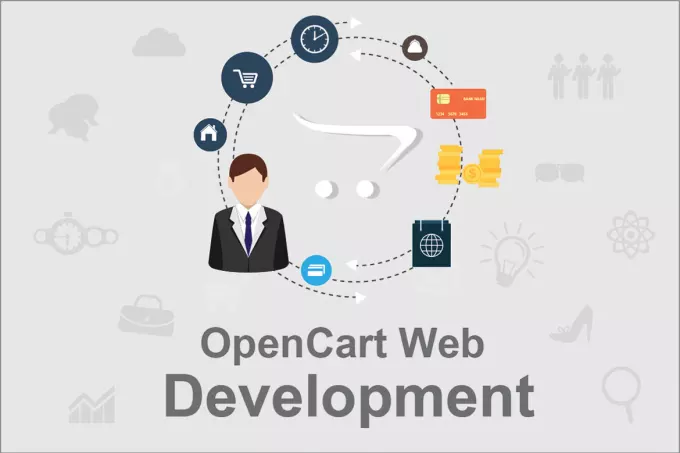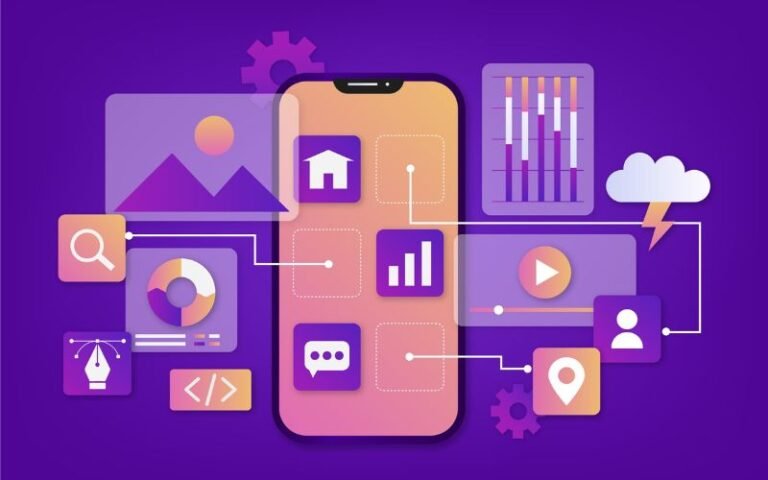The Future of Healthcare: How Healthcare App Development Companies are Transforming Care
The healthcare industry is profoundly transforming, driven by technological advances and a growing demand for more personalized, accessible, and efficient care. Central to this evolution is the rise of mobile health applications, which have revolutionized how patients interact with healthcare providers, manage their health, and access medical information. As a result, businesses are increasingly turning to specialized healthcare app development company to create innovative solutions that enhance patient care and streamline healthcare services.
With patient-centric care becoming the norm, healthcare mobile app development services are playing a critical role in modernizing the industry. From telemedicine platforms to remote monitoring tools, these services are empowering both healthcare professionals and patients. This blog will delve into the latest methods used by healthcare app developers and highlight how businesses can benefit from cutting-edge mobile health technologies.
Table of Contents
ToggleThe Role of Healthcare App Development in Modern Medicine
Mobile healthcare applications are no longer a niche product; they are a necessity in today’s digital age. Hospitals, clinics, and private practices are increasingly adopting mobile health solutions to improve patient engagement, streamline administrative tasks, and provide real-time access to medical data. The rise of healthcare apps has been fueled by several factors:
- Rising Patient Expectations: Patients are demanding more convenient ways to manage their healthcare, whether it’s scheduling appointments, accessing test results, or communicating with doctors remotely.
- Advances in Technology: The growth of AI, machine learning, and the Internet of Things (IoT) has made it easier for healthcare providers to offer more personalized, data-driven care.
- Regulatory Changes: The shift towards value-based care and the increasing emphasis on patient outcomes are pushing healthcare organizations to adopt technologies that support better patient management.
In response, healthcare app development companies are utilizing new methods and technologies to develop mobile applications that meet these evolving needs.
Key Innovations in Healthcare Mobile App Development
The healthcare sector requires solutions that are not only functional but also secure, compliant, and user-friendly. To achieve this, modern healthcare mobile app development services are embracing innovative technologies and methodologies that enable faster, smarter, and more scalable app solutions. Below are some of the groundbreaking trends in healthcare app development.
1. Telemedicine: Expanding Access to Care
Telemedicine has gained widespread acceptance, particularly in the wake of the COVID-19 pandemic, which highlighted the need for remote healthcare solutions. Telemedicine apps enable patients to consult with healthcare providers via video calls, reducing the need for in-person visits and providing access to care regardless of geographical location.
Healthcare app development companies are now creating telemedicine platforms that go beyond simple video consultations. These apps integrate secure messaging, prescription management, and patient record access, creating a comprehensive solution that enhances both patient and provider experiences. Key features include:
- Virtual Appointments: Patients can schedule and attend appointments from the comfort of their homes, reducing travel time and wait times.
- E-Prescriptions: Doctors can prescribe medications electronically, ensuring patients receive timely treatment.
- Real-Time Communication: Patients can communicate directly with their healthcare providers, getting advice or follow-up care more quickly.
By offering robust telemedicine solutions, healthcare mobile app development services are making healthcare more accessible, reducing costs, and improving patient outcomes.
2. AI and Machine Learning: Personalized Healthcare Solutions
Artificial intelligence (AI) and machine learning (ML) are playing an increasingly important role in healthcare mobile app development services. By leveraging AI, developers can create apps that offer personalized healthcare recommendations, predictive diagnostics, and real-time data analysis.
- AI-Driven Diagnostics: Apps can analyze patient data and symptoms to provide preliminary diagnoses, helping doctors make more informed decisions and improving the speed of care.
- Predictive Analytics: AI can predict potential health issues based on patient history and lifestyle factors, allowing for proactive care management.
- Personalized Treatment Plans: ML algorithms can tailor treatment plans to each individual, taking into account their medical history, genetic factors, and specific health conditions.
This trend toward AI-powered healthcare solutions is helping healthcare app development companies create apps that go beyond basic functionality, offering smarter, more adaptive solutions that improve both patient care and operational efficiency.
3. IoT Integration: Enhancing Remote Monitoring and Patient Management
The Internet of Things (IoT) has significantly impacted healthcare by enabling the development of smart devices that can monitor and transmit real-time data. Healthcare app development companies are now integrating IoT solutions into mobile apps, allowing healthcare providers to track patient health metrics remotely.
- Wearable Devices: Wearable technologies such as smartwatches, fitness trackers, and glucose monitors can sync with mobile apps to provide continuous monitoring of patient vitals.
- Remote Monitoring: Patients with chronic conditions can use IoT-enabled apps to track their health metrics (e.g., heart rate, blood pressure, blood sugar levels) and share that data with healthcare providers for real-time monitoring.
- Emergency Alerts: IoT-connected apps can send automated alerts to healthcare professionals if a patient’s health metrics fall outside normal ranges, enabling timely intervention.
By integrating IoT capabilities, healthcare mobile app development services are improving patient care by allowing for proactive monitoring and faster response times to critical health events.
4. Cloud-Based Solutions: Scalable, Secure, and Efficient
Healthcare organizations deal with massive amounts of data, from patient records to medical imaging, that need to be securely stored and easily accessible. Cloud computing offers a scalable and cost-effective solution for managing healthcare data while ensuring compliance with regulations such as HIPAA (Health Insurance Portability and Accountability Act).
Healthcare app development companies are increasingly incorporating cloud-based solutions into their apps, offering several advantages:
- Scalability: Cloud-based systems allow healthcare providers to easily scale their storage and computing resources as their data needs grow.
- Data Security: Cloud providers offer robust security measures, including encryption and multi-factor authentication, ensuring patient data is protected.
- Accessibility: Healthcare providers can access patient data from anywhere, making it easier to collaborate and provide timely care.
Cloud-based healthcare mobile app development services not only enhance data management but also improve the efficiency and scalability of healthcare operations.
5. User-Centered Design: Enhancing Patient Engagement
One of the most important aspects of healthcare mobile app development is ensuring that the end product is user-friendly. A poorly designed app can lead to frustration, reduced usage, and poor patient outcomes. Therefore, healthcare app development companies are focusing on user-centered design to create apps that are intuitive and accessible to all users.
- Simple Navigation: Healthcare apps must be easy to navigate, especially for elderly patients or those who are less tech-savvy.
- Aesthetic Appeal: An app’s visual design can impact how users perceive and interact with it. A clean, organized interface makes it easier for users to access important information quickly.
- Accessibility Features: Apps should include features that make them accessible to users with disabilities, such as voice commands, text-to-speech options, and larger fonts for visually impaired users.
A well-designed app can significantly improve patient engagement and satisfaction, making it an essential component of healthcare mobile app development services.
The Benefits of Working with a Healthcare App Development Company
Partnering with a specialized healthcare app development company offers several key advantages:
- Compliance Expertise: Healthcare apps must adhere to strict regulatory requirements like HIPAA. Working with an experienced development company ensures your app meets these standards.
- Customization: Healthcare organizations have unique needs. A professional development team can create custom apps tailored to your specific requirements, whether you need a telemedicine platform, a patient management system, or a remote monitoring solution.
- Long-Term Support: The healthcare industry is constantly evolving
, and so too must healthcare apps. A reputable healthcare app development company will provide ongoing support and maintenance to ensure that your app remains compliant, secure, and up to date with the latest technologies and regulations.
Conclusion: Embracing Innovation in Healthcare Mobile App Development
The healthcare industry is undergoing a digital transformation, and mobile apps are at the heart of this revolution. From telemedicine and AI-driven diagnostics to IoT-enabled remote monitoring and cloud-based solutions, healthcare mobile app development services are making patient care more accessible, efficient, and personalized.
As more healthcare providers seek to modernize their operations and enhance patient outcomes, partnering with a specialized healthcare app development company is essential. By adopting the latest technologies and user-centered design principles, these companies can deliver innovative mobile apps that meet the needs of today’s healthcare organizations and patients.
In an era where technology is reshaping the healthcare landscape, businesses that invest in mobile app development will not only improve patient care but also position themselves for long-term success in an increasingly digital world.






